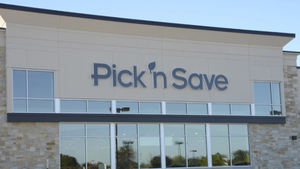FDA MULLS WAYS TO PREVENT E. COLI TAINTING
WASHINGTON (FNS) -- While it will likely remain a mystery how E. coli bacteria got into a batch of fresh apple juice in California this fall, killing one child and making several dozen other people ill, Food and Drug Administration officials here say they're convinced they can take steps to help prevent such contamination in the future.The juice case involving Odwalla, Half Moon Bay, Calif., has prompted
January 6, 1997
JOANNA RAMEY
WASHINGTON (FNS) -- While it will likely remain a mystery how E. coli bacteria got into a batch of fresh apple juice in California this fall, killing one child and making several dozen other people ill, Food and Drug Administration officials here say they're convinced they can take steps to help prevent such contamination in the future.
The juice case involving Odwalla, Half Moon Bay, Calif., has prompted a wide-ranging debate over the safety of fresh juice, touching on such issues as whether pasteurization could prevent contamination and whether fruit growers are doing enough to supply clean crops to food processors.
The FDA recently held a hearing near Washington to gather information from the industry about its food safety methods and how best to prevent future contamination.
While pasteurization is viewed as an almost fail-safe way to kill bacteria that initially creeps into juice, the treatment at the start of the juice-making process doesn't ensure the product remains bacteria-free, said Steven Bogen, chief executive officer of Clark, N.J.-based Fresh Juice Co. Bogen urged the FDA to focus its efforts on strengthening Hazard Analysis Critical Control Point plans within all stages of juice making, instead of mandating pasteurization.
"For consumers, the most important point may be that pasteurization changes the flavor. Pasteurization is not the solution," he said. "A good HACCP plan does work."
Since the Odwalla juice scare, the company has decided to "flash" pasteurize its apple juice, citing the quick exposure to high temperatures as the best way to effectively kill harmful pathogens in fresh juice. Companywide, Odwalla has also revised its HACCP plan. Among key points of the plan is the cleaning of raw fruit and sample testing for the presence of pathogens.
How E. coli, which is present in animal intestines, contaminated the apples remains a mystery, with several theories pointing to apples that had been dropped on the ground to come into contact with cow or deer feces.
Such a scenario was deemed highly unlikely by scientists working in the Washington state apple industry and by the owner of a large New York orchard, who also spoke at the FDA juice hearing. They characterized apple farming as a state-of-the-art process involving careful hand-picking, disinfecting and sorting processes.
"This is not an industry where we scoop products off the ground," said Paul Baker, owner of Baker Farms, Ransomville, N.Y., and chairman of the New York Apple Association, Fishers, N.Y.
Baker also advocated that the FDA continue to permit the sale of fresh apple juice. "As long as we still use good manufacturing practices, this should still be allowed," he said.
As apple growers defended their food safety record, so did an authority on the organic farming industry. Harold Ricker, director of the Agricultural Marketing Service's Organic Standards division here, said E. coli food scares involving produce are largely cited as coming from non-organic farms. In order to be certified as organic, farms must adhere to strict use of manure to eliminate the presence of harmful bacteria.
Also raised at the hearing were concerns that, should the FDA require pasteurizing, juice packagers might also be forced to label their products as such. Currently, only orange juice that is pasteurized must carry the designation.
About the Author
You May Also Like




